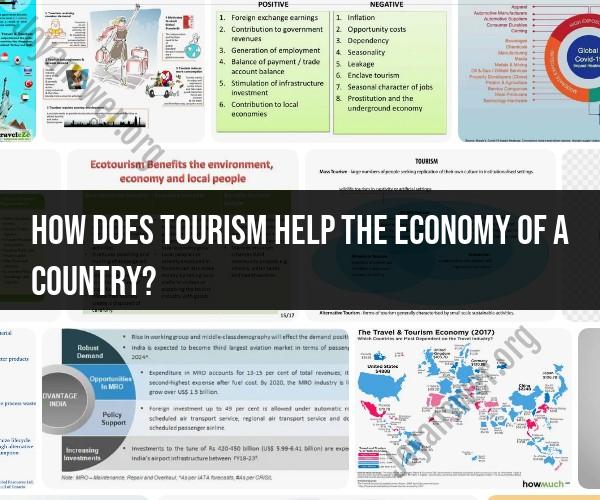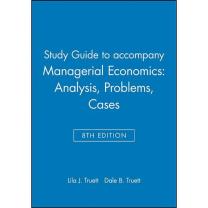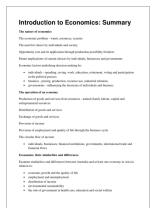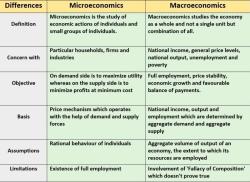How does tourism help the economy of a country?
Tourism can have a significant positive impact on a country's economy in several ways:
Job Creation: Tourism is labor-intensive and creates jobs in various sectors, including hospitality, transportation, entertainment, and service industries. It provides employment opportunities for people with a wide range of skills and educational backgrounds.
Increased Revenue: Tourists spend money on accommodation, food, transportation, activities, and souvenirs. This spending generates revenue for local businesses and the government through taxes and fees.
Economic Diversification: Tourism can diversify the economy by reducing dependency on a single industry. It encourages the development of various sectors, such as hotels, restaurants, and cultural attractions.
Infrastructure Development: To support tourism, governments often invest in infrastructure, including airports, roads, and public transportation. These improvements benefit both tourists and residents.
Small Business Growth: Tourism provides opportunities for small businesses, such as family-owned hotels, restaurants, and tour operators, to thrive and contribute to the local economy.
Foreign Exchange Earnings: International tourism brings in foreign currency, which can help stabilize a nation's economy and support trade balances.
Promotion of Cultural Heritage: Tourism promotes the preservation and celebration of a country's cultural heritage and natural attractions. This not only contributes to identity but also attracts tourists.
Increased Investment: The tourism industry often attracts foreign investment in hotels, resorts, and other infrastructure, which can boost economic development.
Rural Development: Tourism can stimulate economic activity in rural areas, encouraging the development of previously overlooked regions.
Tax Revenue: Governments collect taxes, such as sales tax and hotel occupancy tax, from tourist-related businesses, contributing to public revenue.
Innovation and Entrepreneurship: The tourism sector encourages innovation and entrepreneurship as businesses strive to provide unique and memorable experiences for visitors.
Multiplier Effect: Tourism has a multiplier effect, meaning the economic impact goes beyond the initial spending by tourists. As local businesses and employees spend their earnings, this circulates money throughout the economy.
However, it's important to note that the impact of tourism can also have negative aspects, including environmental degradation, over-tourism, and cultural commodification. Sustainable and responsible tourism practices are crucial to mitigate these negative effects and ensure that the benefits of tourism are shared broadly and endure over time.
Tourism's economic impact can vary significantly from one country to another and within different regions of a country. Successful tourism strategies involve careful planning, infrastructure development, marketing, and consideration of the environmental and social impacts to maximize the benefits while minimizing the downsides.
How Tourism Benefits a Country's Economy
Tourism can benefit a country's economy in a number of ways, including:
- Generating foreign exchange: Tourism is a major source of foreign exchange for many countries. Visitors from other countries spend money on accommodation, food, transportation, activities, and souvenirs. This foreign exchange can be used to import goods and services, invest in the economy, and service debt.
- Creating jobs: Tourism creates jobs directly and indirectly. Direct jobs include those in hotels, restaurants, tour companies, and transportation. Indirect jobs are those in industries that support the tourism sector, such as construction, agriculture, and manufacturing.
- Boosting tax revenues: Tourism generates tax revenues for governments. These revenues can be used to fund public services, such as education, healthcare, and infrastructure.
- Promoting economic development: Tourism can help to promote economic development in rural and underdeveloped areas. By attracting visitors, these areas can benefit from increased investment and job creation.
Economic Advantages of Tourism-Driven Growth
Tourism-driven growth has a number of economic advantages, including:
- It is a relatively clean and sustainable industry: Tourism does not produce pollution or waste in the same way that other industries do. It can also help to preserve cultural heritage and natural resources.
- It is a resilient industry: Tourism is relatively resilient to economic downturns. People are still likely to travel even during difficult economic times.
- It is a global industry: Tourism is a global industry that can connect countries and cultures. It can also help to promote peace and understanding.
The Multiplier Effect and Its Role in Economic Prosperity
The multiplier effect is a concept in economics that describes how an increase in spending in one sector of the economy can lead to an increase in spending in other sectors of the economy.
In the context of tourism, the multiplier effect works as follows:
- Visitors spend money on accommodation, food, transportation, activities, and souvenirs.
- The businesses that receive this revenue spend it on their employees, suppliers, and other businesses in the economy.
- These businesses then spend the revenue they receive on their employees, suppliers, and other businesses in the economy.
This cycle continues, with each round of spending generating a smaller and smaller increase in economic activity. However, the overall impact on the economy can be significant.
Mitigating Seasonal Economic Fluctuations with Tourism
Tourism can help to mitigate seasonal economic fluctuations by attracting visitors during the off-season. This can help to support businesses and jobs during the slower months of the year.
For example, a beach resort may experience a surge in visitors during the summer months. However, if the resort can also attract visitors during the winter months, it can help to keep its businesses open and its employees employed throughout the year.
Balancing Sustainability and Economic Gain in Tourism
It is important to balance sustainability and economic gain in tourism. Tourism can have a negative impact on the environment and on local communities if it is not managed properly.
For example, tourism can lead to pollution, overcrowding, and the destruction of natural resources. It can also lead to gentrification and the displacement of local residents.
There are a number of things that can be done to promote sustainable tourism, including:
- Protecting the environment: Tourism businesses should adopt sustainable practices, such as using renewable energy, reducing waste, and protecting natural resources.
- Supporting local communities: Tourism businesses should support local communities by hiring local residents, buying local products, and investing in local infrastructure.
- Educating tourists: Tourists should be educated about the importance of sustainable tourism and how to minimize their impact on the environment and local communities.
By balancing sustainability and economic gain, tourism can be a force for good in the world. It can help to create jobs, boost tax revenues, promote economic development, and connect countries and cultures.










